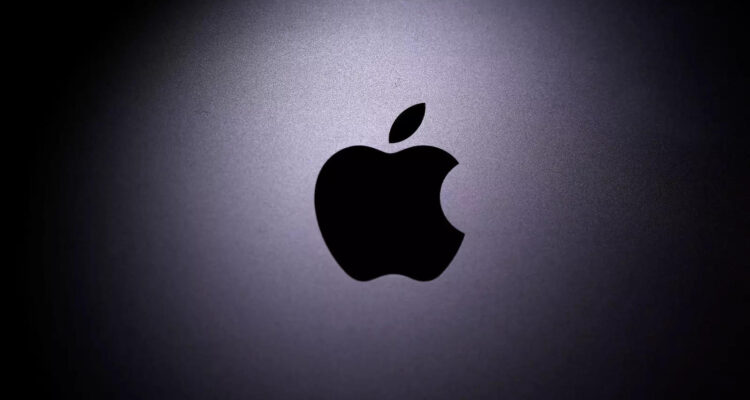Apple is one of the most valuable companies in the world.
Apple, the front-runner, has led the Forbes list of branding behemoths for over nine years in a row, amassing an eye-watering brand worth of $355.1 billion.
History
Apple Inc., a multinational technology firm based in the United States, specializes in consumer goods, software, and online services. Apple is the world’s most valuable firm and the world’s largest technology business by sales. Apple is the fourth-largest PC vendor by unit sales and the fourth-largest smartphone manufacturer in the world as of 2021. Along with Amazon, Google, Microsoft, and Facebook, it is one of the Big Five American information technology businesses.
Steve Jobs, Steve Wozniak, and Ronald Wayne created Apple in 1976 to build and market Wozniak’s Apple I personal computer. Jobs and Wozniak formed Apple Computer, Inc. in 1977, and the company’s computers, especially the Apple II, quickly became popular. They went public in 1980 and were a financial success right away. Apple released various computers with novel graphical user interfaces throughout the next few years, including the first Macintosh, which was unveiled with the highly acclaimed commercial “1984”. However, problems arose as a result of the company’s high prices and restricted application library, as well as power disputes among management. In 1985, Wozniak and Jobs parted ways amicably, with Jobs resigning to create NeXT and taking with him some Apple co-workers.
Perceived Worth
Customers may be ready to pay a greater price if they believe the brand is of excellent quality and/or a status symbol, which is why perceived value is so crucial from a business standpoint. This lies at the heart of Apple’s sustained dominance over its rivals.
Despite the fact that Samsung, in certain years or days, sold more phones, Apple still receives over 87 percent of all smartphone profits (new tab)—a massive monopoly.
Why? The Apple brand has a lot of clouts. Apple’s devoted fans have given it an iconic status, which explains why they can easily charge so much more than their competitors, despite the technology being of similar quality.
Whether you like it or not, Apple is able to charge a premium for its products because they know its brand has the potential to attract sales from a devoted following.
So, what makes Apple so unique in terms of branding?
Apple’s Branding Lessons
It’s difficult to come up with a more inspiring branding success story than Apple’s. Apple was founded by two college dropouts and became America’s first $700 billion company thanks to its pioneering development into other industries and new services such as Apple Pay and iTunes.
Apple’s distinctive branding approach has always been based on emotion, thanks to the leadership of Steve Jobs, a forward-thinking creative visionary. Apple has prioritized cultivating a community of devoted supporters in an almost fanatical manner since the brand’s debut in 1976.
Because they maintain a veil of secrecy around their brand’s inner workings, the buzz surrounding their product releases is unequaled, generating dialogues among both techies and laypeople.
Apple has always positioned itself as a unique company that “Thinks Different.” Unlike any other IT firm, the nuts and bolts of their business strategy, i.e., what their products do, are not what drives sales.
“I want this since it’s a Dual-SIM, 64GB, 12-megapixel hexa-core processing smartphone,” their customers don’t think. “I want this since it’s an Apple iPhone,” they reason.
Apple’s use of a premium exclusivity air when promoting new product releases, as well as its fastidious attention to product aesthetics, has enabled the Apple brand to be linked with luxury in the eyes of its fans. And that is what many of its customers are paying a premium for – a status symbol based on emotion rather than reality.
Customers are more driven to remember—and purchase—good-feeling items and services.
Do you know what the term “unboxing” means? Simply said, unpacking is the process of consumers filming themselves unwrapping their newly purchased Apple items. Why? They like the products because they make them feel fantastic.
Unboxing films provide viewers an unvarnished and honest look at things while also putting the ‘unboxer’ at the center of a brand’s community. No one tells these folks to make these videos, but Apple supports a user experience that extends far beyond the point of purchase, which is why when you search for unboxing videos on YouTube, you’ll discover a staggering number of results.
The enormous popularity of the brand, of course, leaves the company with a great reputation to uphold. All of Apple’s technically advanced goods are not only meant to match the brand promise but are also gravely essential to the company’s continued profitability.
CX Leading the Brand Strategy
So, how does Apple make the customer experience a part of their branding strategy? They prioritize the customer in whatever they do. Take, for example, their “Shot on iPhone” advertisement. It not only demonstrates the camera’s incredible adaptability but also includes entertaining videos taken by real people.
Shot on iPhone successfully combined human emotion with genuine product benefits by giving customers the chance to be a key part of something big (the first installment of the campaign was seen at least 6.5 billion times). The campaign emphasizes Apple’s brand pillars and strengthens an emotional connection with the viewer by showing how their goods fit into people’s lives.
Considering brand loyalty, emotion is the King.
Marketing plans lose the point if there is no emotional connection with the target audience, no matter how greatly engaging or imaginative the brand promotions are.
It is this emotional bond that has developed such brand loyalty among Apple consumers, allowing them to charge so much more for their products than their competitors.
So, what is the secret to retaining a customer’s devotion to a brand? While there is no simple solution, promoting a brand personality that your target audience can relate to can help. What, after all, is a brand? “A brand is a person’s gut feeling about a product, service, or organization,” claims a branding expert. But, yes, Apple is no less a synonym for the word brand.
If you want to build brand loyalty, follow Apple’s lead and engage emotionally with your customers by starting a movement that you believe in. The rest will undoubtedly fall into line.
For more blogs checkout: Blogs






No Comments